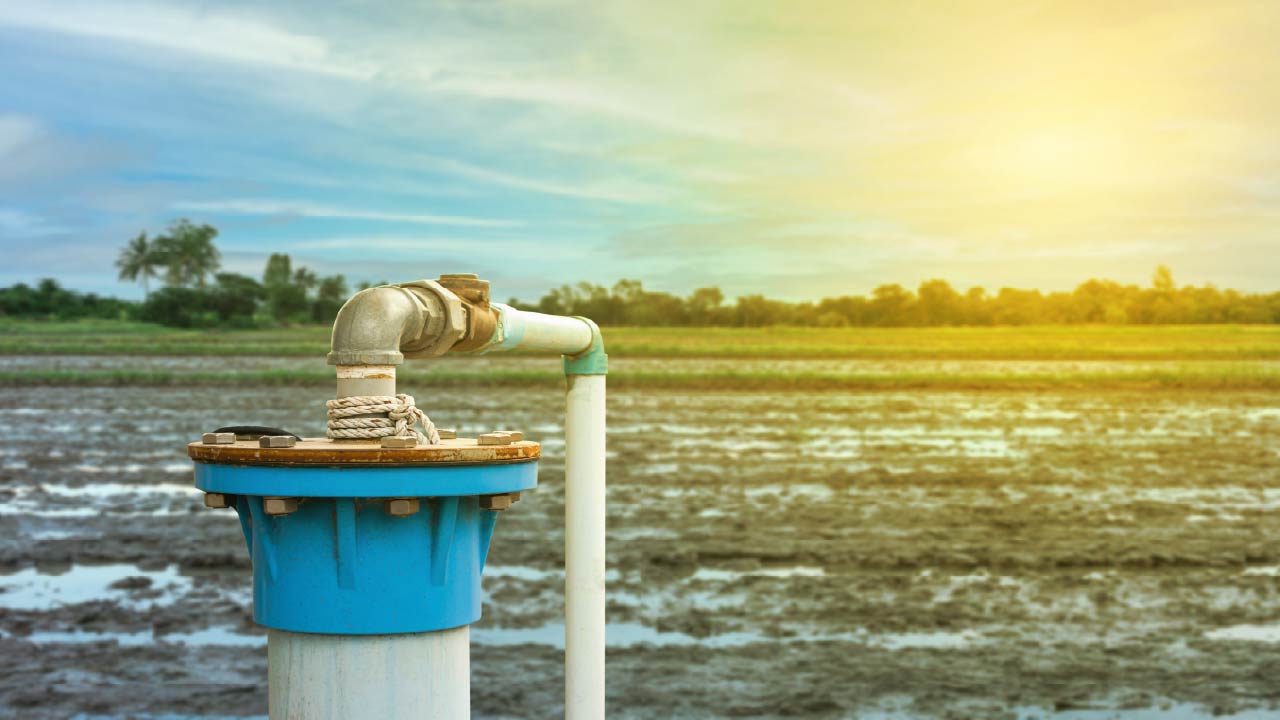Using Well Water for Irrigation Systems: Pros and Cons
Jul 9th 2025
When it comes to irrigation, there are multiple sources of water. You can use well water, tap water, or rainwater. Each of these solutions has advantages and disadvantages that should be considered before determining how to water your yard or garden. Using well water for irrigation has both benefits and drawbacks. It has the potential to be a sustainable, cost-effective, and environmentally friendly choice, but it also presents challenges, such as pressure problems and potential contamination.
In this blog, we will examine the advantages and disadvantages of using well water for irrigation systems to help you make an informed decision about your irrigation needs.
Understanding Well Water
Well water is water drawn from an underground well, which is a hole drilled in the ground to access groundwater. The well water can be either fresh or salty, depending on the type of soil surrounding the well and the rock formations. The well can be used to supply water for both home and commercial properties. The water in a well comes from underground sources such as aquifers.
Well water is pumped directly to your property, giving you a self-sustaining water supply. Unlike city water, well water is not regulated by any other entity, so the homeowner is solely responsible for testing and maintaining the quality of their well water. The quality of the well water depends on the quality of the aquifer from which it's derived; therefore, it's crucial to research and test soil quality before drilling a well.
Pros of Using Well Water for Irrigation
Saves Money
Wells are an affordable source of water for irrigation. Using well water to irrigate your yard and garden is an excellent way to save money on your water and energy bills. After making the initial investment in drilling a well and installing a pump, the water from the well is free. It also eliminates the need to pay for municipal water. All of this leads to substantial cost savings overtime. Pumping water from a well requires less energy than transporting it from a municipal water source.
Environmental Sustainability
Well water is considered more eco-friendly because it does not require chlorine or other chemical treatments that are used to disinfect city water. Well irrigation is also more reliable during droughts when surface water is limited.
Independence from Municipal Water Sources
Using well water for irrigation helps to conserve municipal water supplies, making it beneficial in areas with municipal water restrictions. Installing a water well for irrigation on your property gives you full control of your water supply. It is a dependable water source for future generations.
Potential for Better Water Quality and Health Benefits
Well water is praised for its natural mineral content and is free of chemicals such as chlorine and fluoride. It contains beneficial minerals such as chloride, sulfate, and nitrate, which improve soil fertility. Well water is also an excellent source for individuals who like the natural taste of water.
Cons of Using Well Water for Irrigation
Upfront Costs
Drilling a well is a significant initial investment, encompassing the costs of drilling and installing a pump, as well as storage tanks and water treatment systems.
Contamination Issues
Well water is prone to contamination from agricultural or industrial runoffs that seeps into the groundwater. Therefore, it is essential to test the water for pH and other mineral content to confirm it is safe for irrigation. If it contains visible algae or sediment, don't use it for irrigation.
High Iron and Mineral Content
Another issue with well water is that it can contain large quantities of iron and other minerals. Hard water can cause stains on concrete or brick surfaces, as well as on clothing during the laundry process. If your well water is hard, consider installing a water softener. While this process removes certain minerals from the water, it also increases the salt content. This can become a problem for irrigation because too much salt can harm your plants. DripWorks drip emitters and high-efficiency sprinklers are ideal to use with hard water, as they don't clog easily.
Maintenance and Repairs
A water well requires regular maintenance, such as cleaning, water testing, and pump replacement. They require yearly inspections to prevent major issues and ensure the well's longevity.
Water Pressure Issues
Well water typically flows at a lower pressure and an inconsistent rate compared to city water. When using well water for irrigation, you'll need to adjust your system pressure frequently to account for fluctuations in water pressure or supply.
Potential Water Scarcity
Wells can experience pump failure or go dry during droughts, leaving you without water. If you rely completely on a well for all your irrigation needs, it can become a problem. Therefore, ensure you have a consistent source of well water that can continue to supply sufficient water even during prolonged dry spells.
The Bottom Line
Well water is an excellent option for irrigation, but it has some potential drawbacks that need to be considered before getting started. It is affordable, eco-friendly, and readily available in most areas, making well water a tempting option for conserve municipal water.
Some people are unsure whether to use well water or city water. When you have water directly from your well, you don't have to worry about a city water bill, and you have control over the quality and pressure of the water in your home. Additionally, if the electricity goes off, so does your water system, as it is powered by an electric well pump. Make sure to check with your local water authority to see if there are any restrictions in your area regarding well water irrigation.

